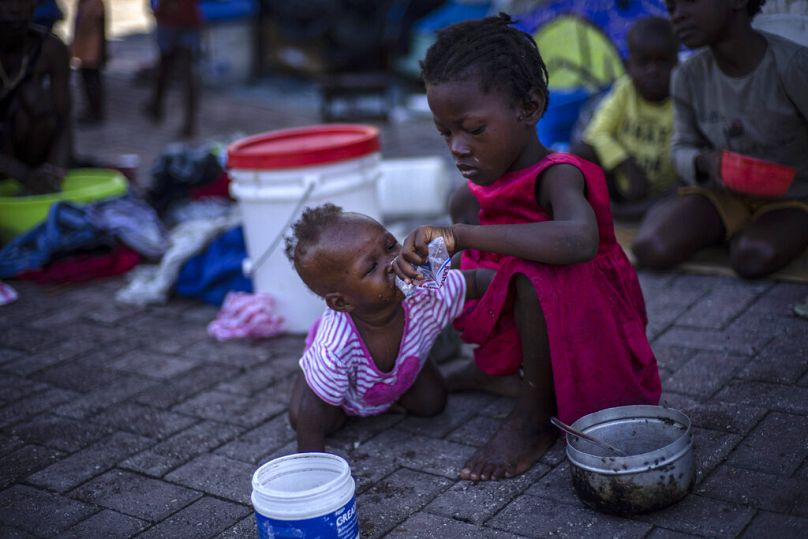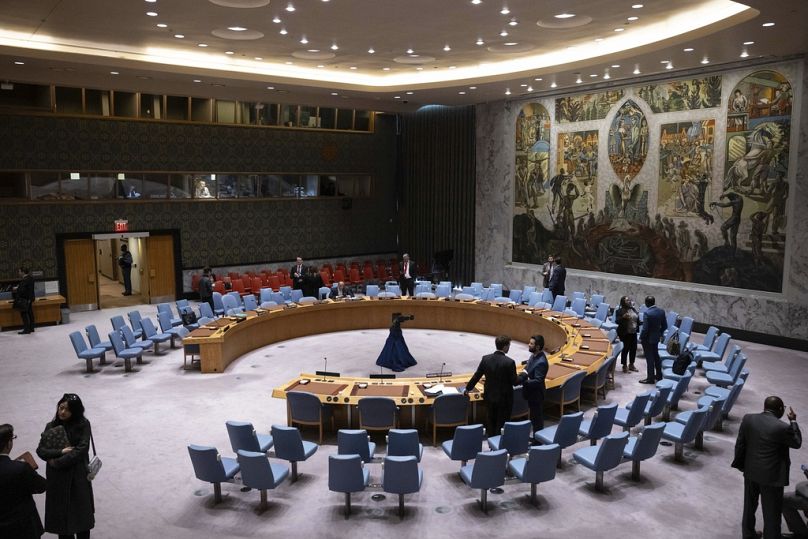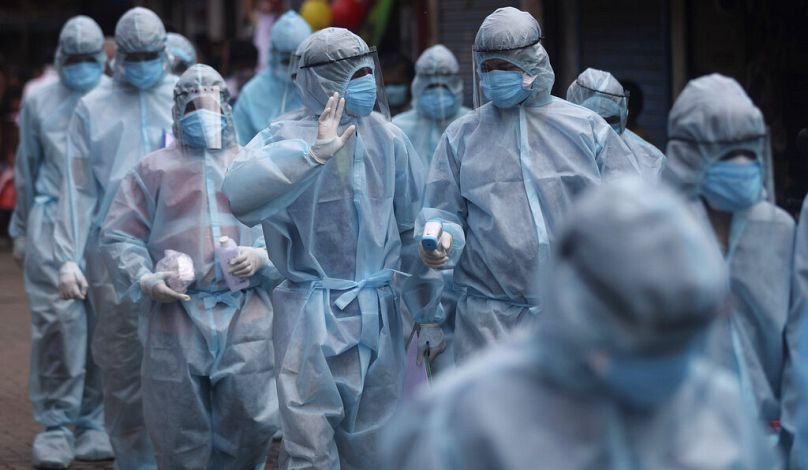This article was written by Colombe Cahen-Salvador and originally published in Euronews. Click here to read the original piece.
The UN chief is chosen in an opaque process by countries seeking to uphold the status quo without any public involvement. This results in the selection of the person that will upset the least, or appease the most of those hyper-polarized powers, Colombe Cahen-Salvador writes.
Five countries will choose the next United Nations chief, all five currently involved in war crimes or crimes against humanity. No, this is not an April Fool’s Joke.
In this era of perma-crises, who the next United Nations Secretary-General is truly matters. While she is expected to be selected in two years' time, the process is about to start.
Her political leadership, vision and ability to stand up to superpowers will determine our future. But of course, this depends on whether the five countries selecting her — the US, the UK, France, China and Russia — can think beyond their national interests and toward the common good for the next few years.
It is unlikely, but not impossible. In 2021, Atlas, the global political movement I co-founded, did exactly that by running for the role with a people-backed candidate.
Thanks to global mobilization, even the UN General Assembly took notice of our candidate. We, the people, can give the world a fighting chance ahead of 2026.
Time for such actions is of the essence. Our survival is at risk.
UN's outdated and democratic setup won't do us any favours
Climate change, wars, unregulated artificial intelligence, dictatorships, poverty, and pandemics threaten our existence. The evidence is all around us.
Between February 2023 and January of this year, global warming exceeded the 1.5 degrees Celsius threshold.
Clearly, those existential threats are not dealt with adequately. That’s not only due to their complexity and overwhelming impact on all sectors of society but also to the fact that they know no borders.
They are global and should fall under the United Nations' oversight, our most prominent international institution. However, it too often fails to lead the world away from some of the threats to its survival.
That’s not due to a lack of trying and sometimes succeeding. Through robust, global efforts, the UN eradicated smallpox, managed to protect the ozone layer, and contained the spread of nuclear weapons, amongst many other phenomenal wins.
However, the issue remains that its outdated and undemocratic setup failed to grant it adequate competencies and created a lack of legitimacy for it to be able to tackle the biggest threats of our time.
No true citizen involvement, no desire for popular support
While civil society organisations and activists work tirelessly to address the world’s biggest issues, we need more.
I would know: I have spent the last seven years mobilising people across borders to, for example, ban fossil fuel subsidies, ensure equitable access to vaccines, or organise boycotts of Russia’s presidency of the UN Security Council during its invasion of Ukraine.
And while activists and organisations are often, if not always, at the forefront of change and moving the tide, those wanting to address the global perma-crises we live through cannot do so from the sidelines only.
The UN does not allow for true citizen involvement, nor seeks popular support.
Consider that even the UN chief is chosen in an opaque process by countries seeking to uphold the status quo, without any public involvement.
In short, every five years, the UN Security Council — arguably the most powerful body — recommends one candidate to be confirmed.
Its permanent members — the US, the UK, France, China and Russia — have a right to veto. They alone are king or queen makers.
This results in the selection of the person — shamefully, so far always a man — that will upset the least, or appease the most of those hyper-polarized powers.
This, instead of someone with a vision of how to tame the survival threats we face and create a future in which humans and the planet can thrive.
Change has to come from the top
Consider the ramifications: all five permanent members are involved in some of the most egregious ongoing crises the world has seen in a long time.
From the US and the UK selling arms to Israel despite the International Court of Justice’s ruling that the country might plausibly be committing acts of genocide against Palestinians in Gaza, to French weapons being sold to Saudi Arabia and fuelling its war crimes against Yemeni civilians, China’s rights violations against Uyghurs that could amount to crimes against humanity or Russia’s illegal invasion of Ukraine and ensuing war crimes.
To even stand a chance at ending such crimes and conflicts, the UN chief must be able to call them out and rally the people for change. But the world pays little attention to this selection process or to the UN: we have no say in this opaque and obscure system.
To ensure that the next pandemic doesn’t kill 7 million people worldwide, that democracy does not continue to lose ground, or that we can transition away from fossil fuel economies fast and fairly, we must change the United Nations, starting from its leader.
I won’t lie; the UN chief has little competencies and ability to govern. But through leadership, radical demands and political will she can push for real radical action for humanity to stand a chance at a future worth living.
But not only. She can also unapologetically embody the much-needed reform of the United Nations.
Igniting the fire of a revolution
The next United Nations Secretary-General can represent the people of the world by involving them in decision-making processes and putting their interests first, not the ones of the most powerful countries.
That is exactly why I am running to become United Nations Secretary-General: to tackle those very threats putting our survival at risk: climate change, unregulated tech, conflicts, dictatorships, pandemics, and poverty.
Through this bid, with your help, we can challenge this broken system, put survival threats on top of the political agenda, and ignite the fire of a revolution that will start at the UN but will not stop there.
We do not have the luxury of time or blind hope. We cannot wait for another world war for political leaders and institutions to finally overcome their differences for the common good.
We must act fast, decisively, and radically. The clock is ticking.
Colombe Cahen-Salvador is a political activist who co-founded and is co-directing Atlas, the global political movement for humanity's survival. She previously co-founded the pan-European party Volt Europa.


